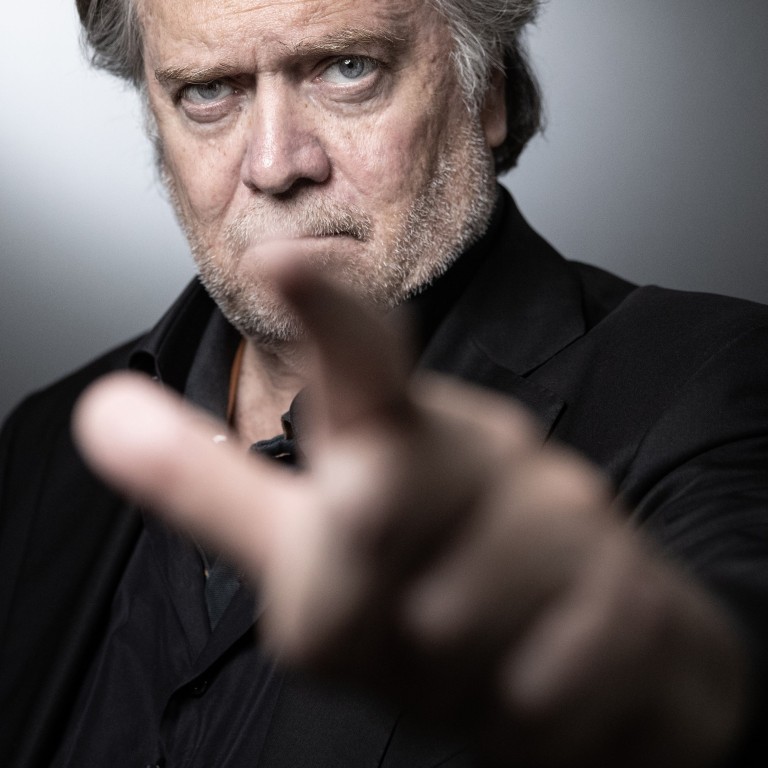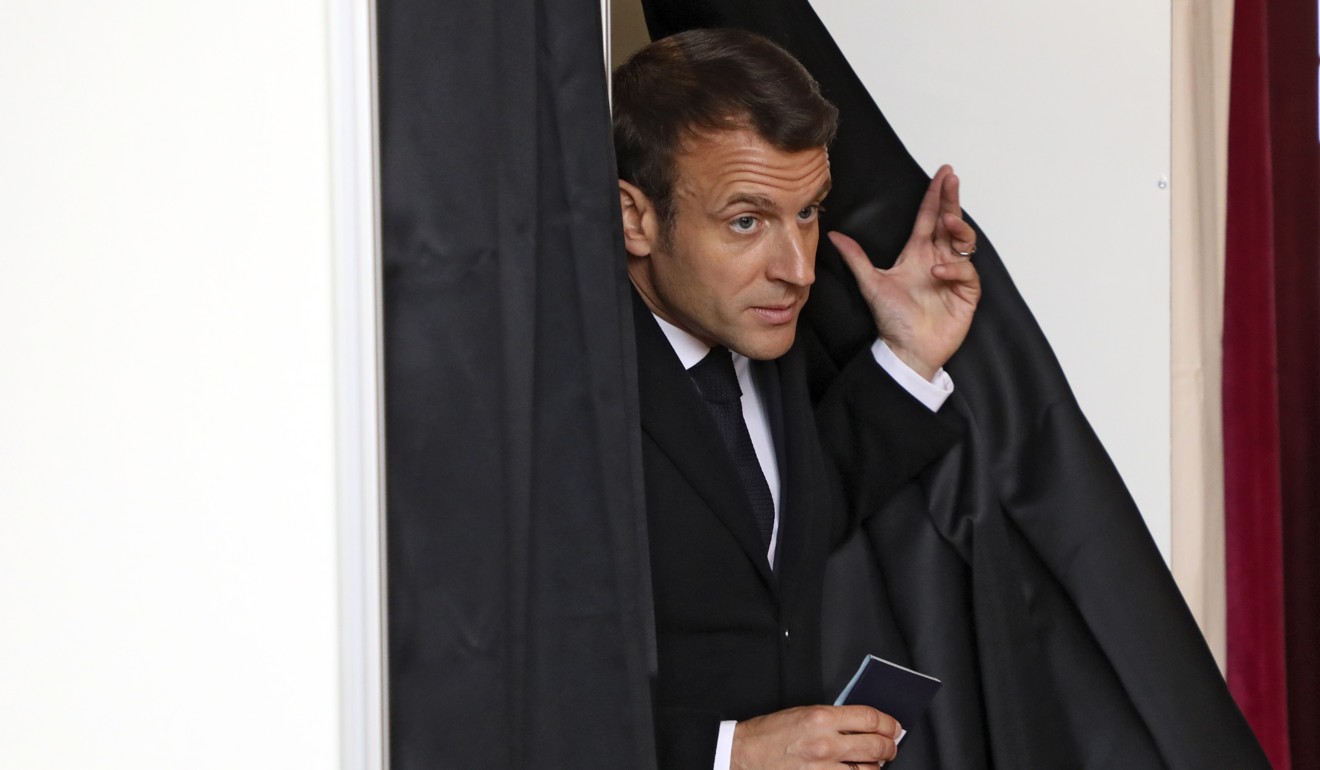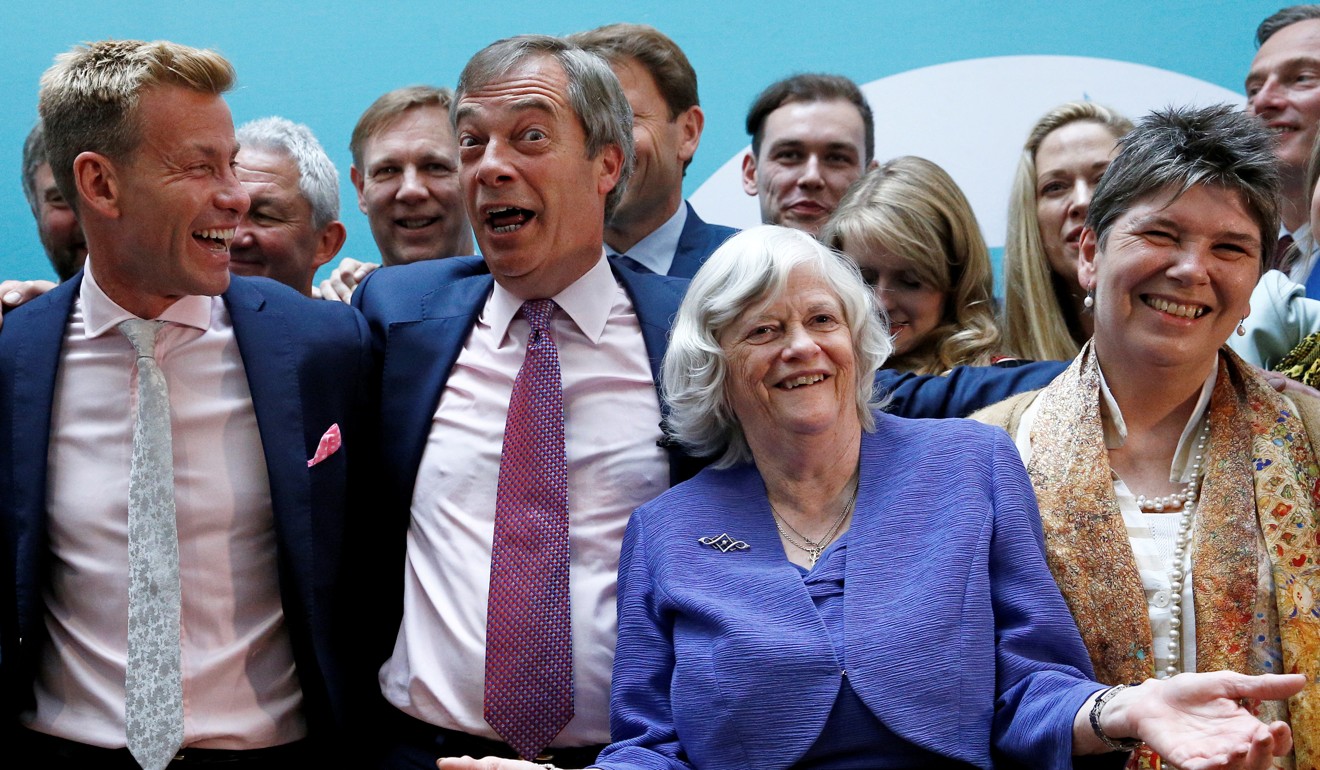
EU elections: Steve Bannon says integration is ‘dead’, as he urges right-wing parties to form ‘supergroup’ in European Parliament
- Populists and Eurosceptic parties made gains in polls but remain split on key issues
- Former Trump adviser sees France’s Le Pen as ‘the key’ to uniting various groups thanks to her defeat of Emmanuel Macron’s LREM party
Former Trump adviser Steve Bannon hailed election results for the European Parliament on Monday and said the idea of further European Union integration was “dead” after gains by far-right nationalist parties.
Bannon, who has sought to build links with European populist parties, also urged them to get over their differences and form a “supergroup” in the parliament in the next month.
“The integration movement, which is what the EU has always been about, is dead,” Bannon said in an interview in his €5,400-a-night (US$6,000) suite at Le Bristol hotel in Paris.
“You will not see [EU Commission President] Juncker or any of that crowd pushing for more integration. That’s the historic thing about yesterday,” added the head of US President Donald Trump’s victorious 2016 election campaign.

Bannon revelled in the second-place finish of French President Emmanuel Macron’s Republic on the Move (LREM) party, which trailed the far-right National Rally of Marine Le Pen.
“He went all in and lost,” Bannon said. “He has not expanded his base outside the urban metropolitan elite.”
He added: “I don’t know of any politician in living memory who has had as bad a run as Macron in the last four to five months, so I imagine he’s a little sore.”
Here are five key takeaways from the EU elections
Pro-European parties will hold a majority in the new European Parliament, however, although the traditional centre-right and centre-left groups lost ground in the EU-wide election.
Macron’s allies have also put a positive spin on Sunday’s results in France, highlighting how LREM finished a close second to the RN and how Le Pen’s party scored a lower proportion of the vote than in the last EU election in 2014.
Various populists, Eurosceptic and right-wing parties made gains overall in the European elections – winning more than 150 seats and finishing top in France, Italy and Britain – but they remain split on key issues.

If they were to act as one, they could be the second- or third-biggest force in the EU parliament, but many analysts see their chances of uniting as being slim and their future influence as limited.
“I think the supergroup is absolutely essential because that critical mass makes a statement in the EU. You are going to have to be united around a few core issues,” Bannon said.
“This is going to take both vision and statecraft to put together because there are differences,” he added.
Who will replace European Commission President Juncker?
The ruling hard-right nationalist party in Poland has so far refused to align with Le Pen’s National Rally party because of her pro-Russian views.
Britain’s Nigel Farage, head of the victorious Brexit party, has also rejected any tie-up with Le Pen in the past over the history of anti-Semitism in the French far-right.
Rather than the problem, Bannon sees Le Pen as the solution.
“I wear that as a badge of an honour … I don’t mind taking the incoming. I’m a honey badger. I kind of like it
“Le Pen is the key that picks the lock,” he said of the 50-year-old, who invited Bannon to address the first meeting of her newly rebranded party – previously known as the National Front – in March last year.
“Because she defeated Macron,” Bannon added. “He is such an important element in this. He is the system, he personifies it and he articulates it in a very sincere way.”
The former investment banker’s stay in Paris has created waves, with a senior aide in Macron’s party saying it made him want to “throw up” and the present speaker of parliament and his five predecessors writing a joint letter to denounce Bannon.
Farage’s Brexit Party triumphs in EU vote, disaster for Tories
They criticised his “untimely meddling” in French politics.
“I wear that as a badge of an honour,” Bannon said when asked of the criticism, adding that he had merely given a few television interviews since arriving in Paris last week.
“I came here and made some observations about the election, about how Macron had made this a referendum on himself,” he added. “I don’t mind taking the incoming. I’m a honey badger. I kind of like it.”

Bannon’s efforts to forge unity among the EU’s anti-immigration, Eurosceptic parties has hit hurdles.
He announced the creation of a Brussels-based foundation called “The Movement” to spark a populist right-wing revolt in the European elections, but many potential partners have distanced themselves publicly.
“I’m just an observer,” he said. “You don’t need Steve Bannon to come over to Europe to win races.
“[But] if they need assistance, we will be there.”

.png?itok=arIb17P0)